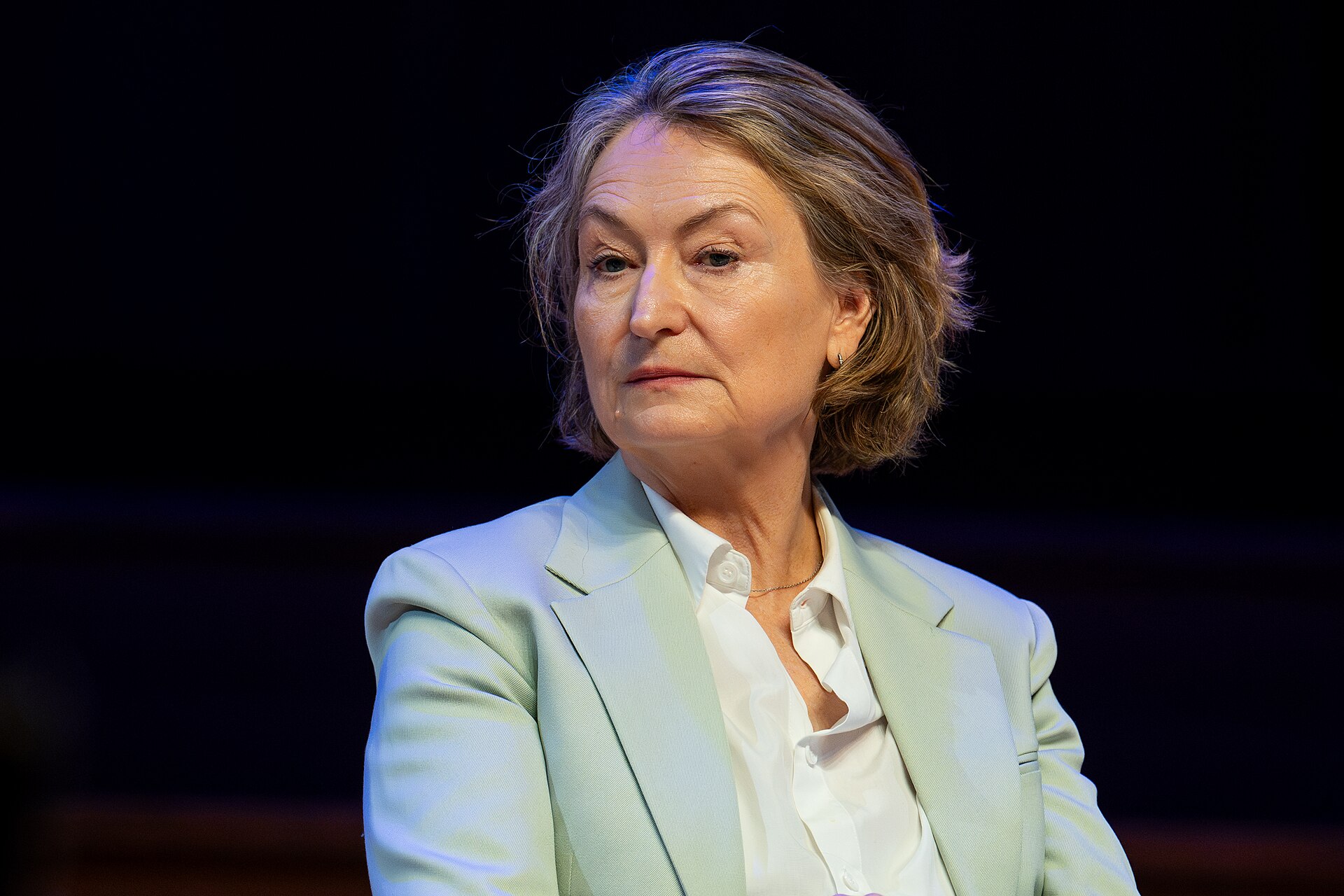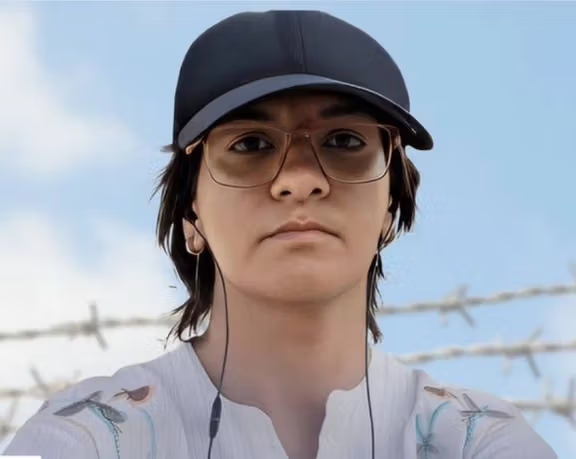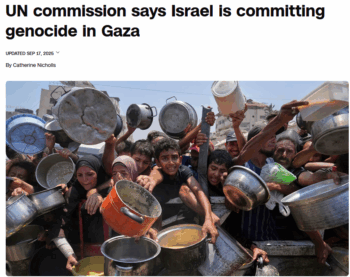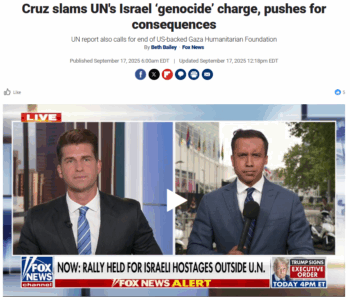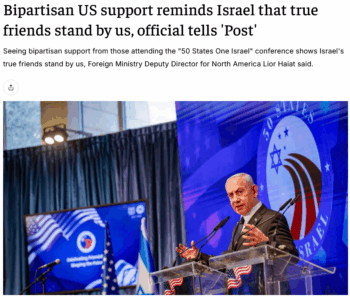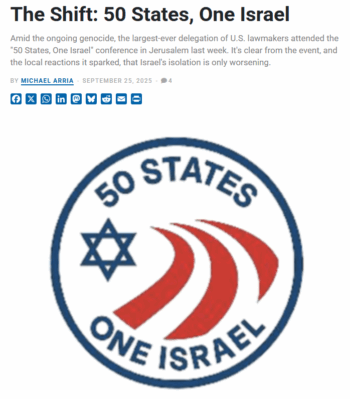Although US president Donald Trump has aided and abetted the Gaza genocide, he has now proposed a 20-point plan for the Strip, which he claims will restore peace and economic stability to the enclave. But his plan – which the Israeli occupation has agreed to – is nothing more than a colonial project which is completely disconnected from the realities on the ground.
Trump’s 20-point plan for Gaza: biased towards Israel

Hamas is now said to be studying the proposal “in good faith”, but other resistance groups in Gaza have expressed concern, with Palestinian Islamic Jihad saying the plan is a “recipe to blow up the region”, and the Popular Front for the Liberation of Palestine, a leftwing group, saying it:
will impose a formula of surrender on the resistance and our people.
But the much hated Palestinian Authority, which the vast majority of Palestinians in both the West Bank and Gaza believe to be corrupt, has agreed to the proposal, which will see it undergo a reform programme, the details of which are so far unknown.
Starmer supports Trump’s plan, having said:
All sides must now come together to bring this initiative into reality.
However, the plan not only fails to address the ongoing Israeli occupation – which is the root cause of the genocide, instead focusing on security measures benefiting Israel – but also offers no guarantees for Palestinian self-determination or rights. Without addressing these points, Trump’s plan is doomed to fail.
There is also no stipulation for the withdrawal of occupation forces from Gaza, only a gradual withdrawal with no set timeline. Netanyahu has already claimed they will remain in Gaza, stating on X:
Instead of Hamas isolating us, we turn the tables and isolated it. Now the entire world is pressurising Hamas to accept the conditions we set-the release of all hostages, while the IDF stays in most of the enclave.
Trump’s Gaza plan: Hamas to demilitarise and Palestinian population to ‘de-radicalise’
Trump’s plan not only talks about the “establishment of a process to de-radicalize the population”, but demands Hamas demilitarise, so it “does not pose a threat to its neighbours” – meaning the Israeli occupation.
Resistance is all Palestinians have, and they have a legal right to defend themselves against their occupier, under international law. Hamas was formed as a reaction to the illegal occupation, and without occupation there would be no need for such a resistance group. Demilitarising means Palestinians will be unable to defend themselves the next time Israel carries out its genocidal actions against Gaza’s population.
According to Hani Al Masri, director of Palestinian NGO Masarat – The Palestinian Centre for Policy Research & Strategic Studies:
The only clear, binding, and immediate component of the plan is the release of Israeli prisoners, within 72 hours of a ceasefire coming into effect, and the provision of humanitarian aid.The rest of the clauses are vague and require negotiation, with no timelines or guarantees- serving the Israeli position.
The proposal stipulates that after the Israeli prisoners are released:
Israel will release 250 life sentence prisoners plus 1,700 Gazans who were detained after October 7. For every Israeli hostage whose remains are released, Israel will release the remains of 15 deceased Gazans.
GHF ‘death traps’ to continue?
Trump’s plan states that immediately after the prisoner swap has taken place, aid will be:
distributed – without interference from either side – by the United Nations and the Red Crescent, along with other international organizations not associated with either Israel or Hamas.
This could mean the GHF aid distribution sites, which are nothing more than ‘death traps’ run by US mercenaries and Israeli occupation forces, may continue distributing aid if Trump’s plan is implemented.
According to the Palestinian Health Ministry in Gaza, as of 30 September, 2567 starving aid seekers have so far been killed, and 18,873 injured in Gaza.
‘No guarantees’ Netanyahu will not reactivate his ‘genocidal war’
Mustafa Barghouti is a Palestinian doctor, activist, and politician, who co-founded the Palestinian National Initiative.
He told the Canary:
Israel failed in conducting the ethnic cleansing in Gaza, but they have destroyed it completely. They should have been forced to pay reparations for the inhuman destruction they have caused. It is important to stop the genocidal war and to alleviate the humanitarian suffering but Trump’s plan ignores the Palestinians and the root cause of the conflict which is the Israeli occupation and apartheid. The plan is full of mines that can explode the whole situation. There are no guarantees that Netanyahu will not reactivate his genocidal war after he gets back the Israeli captives. The Israeli troops will stay in Gaza for a long time and there are no guarantees of full withdrawal.
Under Trump’s proposal, Gaza would be run on a daily basis by a ‘technocratic’ Palestinian administration made up of individuals without ties to any political faction. Palestinians would have no say in this leadership, which would instead be appointed by the ‘Board of Peace’ an international body created to carry out the ‘peace plan’, which would be responsible for guiding the plan’s implementation and coordinating efforts among key regional and global leaders. This ‘Board of Peace’ would not only be headed and chaired by Trump, but also another war criminal, Tony Blair, who led Britain into an illegal war which resulted in the deaths of hundreds of thousands of Iraqis and caused widespread devastation, but has never faced justice for his crimes.

Blair’s backing of Trump’s proposal, raises serious concerns about the credibility and intentions behind the plan of the president, who recently – along with Trump’s son-in-law Jared Kushner – had wanted to ethnically cleanse Gaza of its Palestinian population and turn the Strip into the ‘Riviera of the Middle East’. Kushner has now been involved in a behind the scenes meeting with Netanyahu and White House envoy Steve Witcoff, which lasted more than six hours, in which Netanyahu managed to negotiate several changes to the proposal concerning the Israeli occupation forces withdrawal from the Strip.
Plan will undermine potential for independent Palestinian state
A critical problem with this plan is its failure to secure meaningful self-determination for Palestinians. Despite references to Gaza governance reform, the plan does not guarantee a sovereign Palestinian state or provide a clear path toward political independence, and this interference of foreign powers – foreign powers who have been quick to recognise the state of Palestine in recent weeks – is described by Barghouti as the ‘worst mine’.
He said:
The worst mine is the imposition of foreign rule on Palestinians in Gaza, which will separate the Gaza Strip from the West Bank and undermine any potential of an independent Palestinian state.
Hamas has been given “three or four days” to respond by Trump, after which Trump has pledged to give Netanyahu full backing:
to do what you would have to do.
In response, Netanyahu warned:
But if Hamas rejects your plan, Mr President, or if they supposedly accept it and then basically do everything to counter it, then Israel will finish the job by itself.
Trump’s proposal: illegal under international law
Shahd Hammouri is an international lawyer and senior legal consultant at Law for Palestine, who has also acted as a legal consultant on the International Court of Justice (ICJ) Advisory Opinion on the Legality of the Israeli Occupation of Palestine.
She told the Canary that Trump’s proposed Gaza plan violates the basic principles of international law, including the ICJ’s 2024 Advisory Opinion on the illegality of the Israeli occupation, and the provisional measures and findings in South Africa’s genocide case against Israel. States accepting this plan would be in breach of their own international obligations, because a new form of occupation would be unlawfully imposed on the population of Gaza, while coerced agreements are considered invalid.
Hammouri said:
The proposal to install a temporary foreign governance body that introduces a security regime constitutes a new form of foreign occupation, violating the Palestinian right to self-determination. The inclusion of some Palestinian representatives does not negate the body’s fundamentally foreign and imposed character, while agreements signed under physical duress are void under international law. Leveraging military superiority to inflict excessive suffering- which has crossed the threshold of a genocide – upon a colonized population under illegal occupation constitutes such duress. Any agreement reached under these conditions should be legally invalid.
Trump’s 20-point plan for Gaza does not meet the requirements of international law, nor the fundamental conditions for a just and lasting peace. By leaving the Israeli occupation in place, denying Palestinians the right to self-determination, and imposing foreign control over Gaza’s governance, the plan effectively entrenches the very structures that fuel the perpetual conflict.
Coerced agreements reached under conditions of mass displacement, siege, and ongoing military pressure carry no legitimacy, while the absence of binding guarantees on Israel renders the plan unenforceable. Unless the core issue of occupation is addressed, any arrangement – however it is presented – will remain unstable, unsustainable, and in violation of international law.
Feature image via CBS News/Youtube.
By Charlie Jaay
This post was originally published on Canary.


